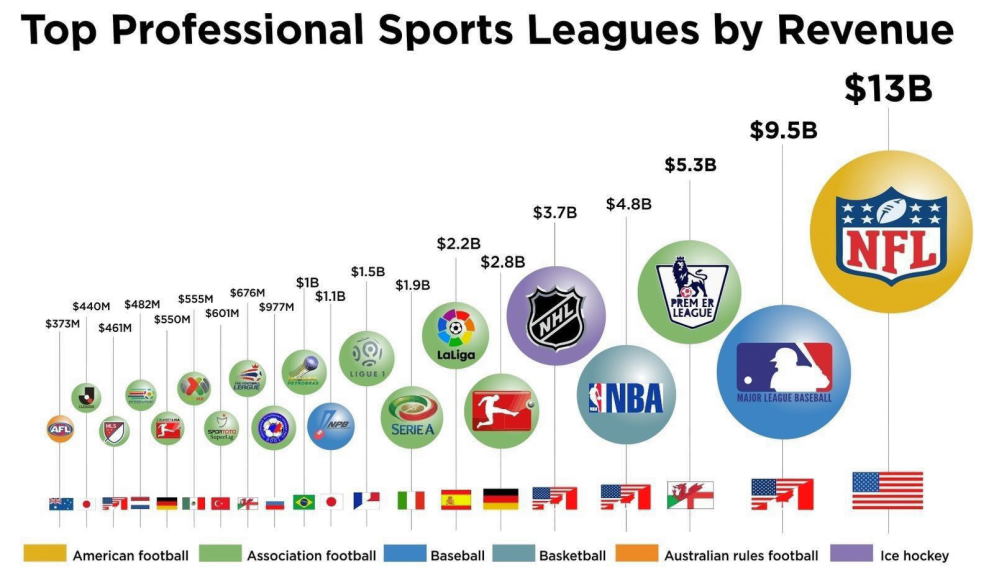Did you know that sports leagues’ most important sources of income come from TV contracts, ticket sales, and sponsorships? In fact, these three sources account for more than 80% of all revenue generated by professional sports leagues. This is why it’s so important for sports leagues to have strong relationships with TV networks, teams, and sponsors. Without these key partnerships, sports leagues would struggle to make ends meet. So far, the NBA and NFL have been the most successful in this area, but other leagues are starting to catch up. It will be interesting to see how the landscape changes in the years ahead.

The biggest revenue streams for sports teams
- Ticket Sales – One of the most important sources of income for sports leagues is ticket sales. Fans are willing to pay good money to see their favorite teams and athletes compete, and this revenue stream can be very significant for a league.
- Television Rights – Another major source of income for sports leagues comes from television rights. Leagues will often sell the rights to broadcast their games to networks, generating a lot of revenue through advertising and viewer subscriptions.
- Merchandise Sales – Sports leagues also generate a lot of income through merchandise sales. Fans love buying jerseys, hats, and other memorabilia bearing their favorite team’s logo, which can be a major source of revenue for a league.
- Sponsorships – Another significant source of income for sports leagues comes from sponsorships. Companies are often willing to pay good money to have their name associated with a popular team or league, which can boost a league’s bottom line.
- Licensing Fees – Finally, sports leagues also generate income through licensing fees. When a company wants to use a team’s logo or name in its product, it has to pay a licensing fee to the league, which can be a significant source of revenue.
Economic values of professional sport franchises
Professional sport franchises are big business. For example, in the United States, the average value of an NFL franchise is $1.97 billion, while the average value of an NBA franchise is $1.65 billion. These values have been on the rise in recent years as the popularity of professional sports has grown worldwide.
One of the main reasons that professional sport franchises are so valuable is because they generate a lot of revenue. For example, the NFL generated $13 billion in revenue, while the NBA generated $8 billion. This revenue comes from various sources, including ticket sales, television rights, and sponsorship deals.
Another reason professional sport franchises are valuable is that they can be sold for a lot of money. For instance, the Los Angeles Dodgers were sold for $2.1 billion, while the Miami Dolphins were sold for $1.1 billion. These sales prices are often much higher than the actual value of the franchise, as buyers are willing to pay a premium for a team they think will be successful in the future.
Professional sports franchises are valuable because they generate a lot of revenue and can be sold for a high price. This makes them an attractive investment for many people and businesses.


